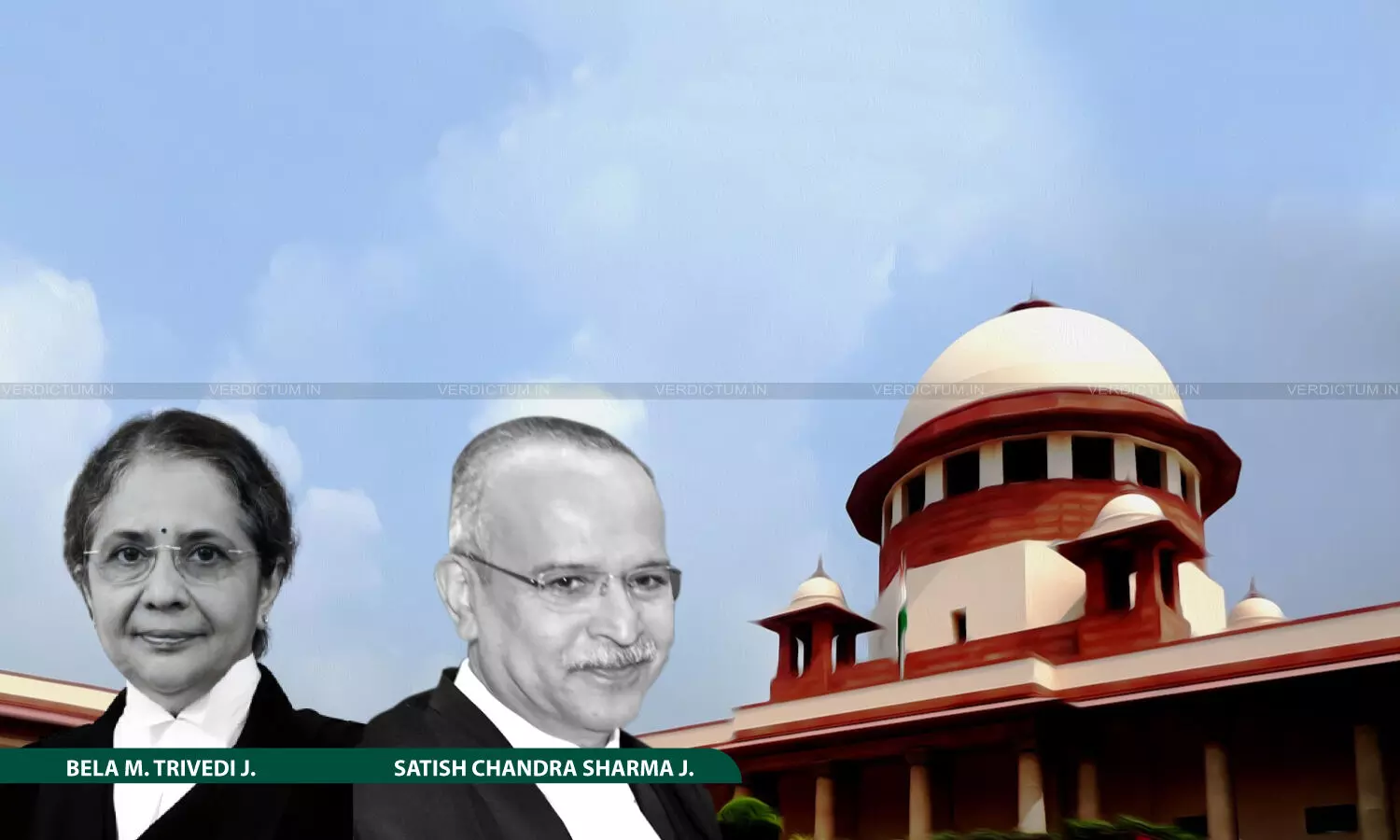
Justice Bela M. Trivedi, Justice Satish Chandra Sharma, Supreme Court
NCLT & NCLAT Do Not Have Jurisdiction To Review Decision Of Statutory Authority Under PMLA: Supreme Court
 |
|The Supreme Court held that neither the NCLT nor the NCLAT is vested with the powers of judicial review over the decision taken by the Government or Statutory Authority in relation to a matter which is in the realm of Public Law.
The Supreme Court in its recent Judgment, held that the National Company Law Tribunal (NCLT) and the National Company Law Appellate Tribunal (NCLAT) do not have jurisdiction to review the decision of the Statutory Authority under the Prevention of Money Laundering Act, 2002 (PMLA).
The Court held thus in a batch of Civil Appeals filed against the Judgment of the NCLAT, New Delhi in the Company Appeals filed by various parties.
The two-Judge Bench comprising Justice Bela M. Trivedi and Justice Satish Chandra Sharma observed, “The PMLA being a Public Law, the NCLAT did not have any power or jurisdiction to review the decision of the Statutory Authority under the PMLA. In our opinion, apart from the fact that the said issue was pending before this Court in respect of the same PAO dated 10.10.2019 and therefore the NCLAT should not have decided the said issue, it was beyond the jurisdiction of the NCLAT to decide the said issue in the Company Appeal filed by JSW under Section 61 of IBC.”
The Bench elucidated that neither the NCLT nor the NCLAT is vested with the powers of judicial review over the decision taken by the Government or Statutory Authority in relation to a matter which is in the realm of Public Law.
Senior Advocate Dhruv Mehta appeared on behalf of the Appellants while Senior Advocates Neeraj Kishan Kaul and Abhishek Manu Singhvi appeared on behalf of the Respondents.
Reasoning
The Supreme Court in view of the above facts, noted, “… the NCLT and NCLAT are constituted under Section 408 and 410 of the Companies Act, 2013 and not under the IBC. The jurisdiction and powers of the NCLT and NCLAT are well circumscribed under Section 31 and Section 60 so far as NCLT is concerned, and under Section 61 of IBC so far as the NCLAT is concerned.”
The Court was of the opinion that nobody should be permitted to misuse the Process of law nor should be permitted to take undue advantage of the pendency of any proceedings in any Court or Tribunal.
“Instituting vexatious and frivolous litigations in the NCLT or NCLAT and delaying the implementation of Resolution Plan under the garb of pendency of proceedings, has clearly proved the mala fide and dishonest intention on the part of JSW, in firstly securing highest score making misrepresentation before CoC and then not implementing the same under the garb of pendency of proceedings, though the Resolution Plan was supposed to be an unconditional one”, it added.
The Court further said that an illegality of any nature cannot be permitted to be perpetuated, and a plea of fait accompli cannot be permitted to be raised by any party to cover up their illegal acts, after achieving the ill motivated intentions circumventing the law.
“In that view of the matter, it is held that the observations made and the findings recorded by the NCLAT in the impugned judgment with regard to the PAO dated 10.10.2019 passed by the Directorate of Enforcement under the PMLA, being without any authority of law and without jurisdiction, were coram non judice”, it also held.
Accordingly, the Apex Court allowed the Appeals and quashed the Judgments of the Tribunals.
Cause Title- Kalyani Transco v. M/s. Bhushan Power and Steel Ltd. & Ors. (Neutral Citation: 2025 INSC 621)